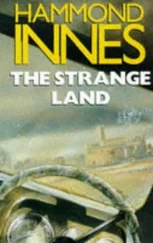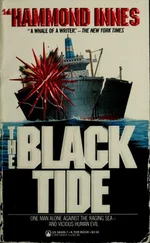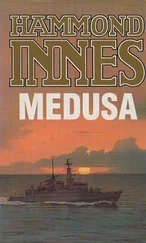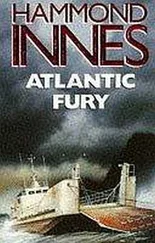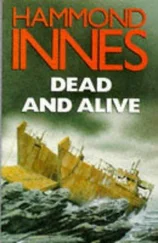Hammond Innes - The Trojan Horse
Здесь есть возможность читать онлайн «Hammond Innes - The Trojan Horse» весь текст электронной книги совершенно бесплатно (целиком полную версию без сокращений). В некоторых случаях можно слушать аудио, скачать через торрент в формате fb2 и присутствует краткое содержание. Жанр: Прочие приключения, на английском языке. Описание произведения, (предисловие) а так же отзывы посетителей доступны на портале библиотеки ЛибКат.
- Название:The Trojan Horse
- Автор:
- Жанр:
- Год:неизвестен
- ISBN:нет данных
- Рейтинг книги:4 / 5. Голосов: 1
-
Избранное:Добавить в избранное
- Отзывы:
-
Ваша оценка:
- 80
- 1
- 2
- 3
- 4
- 5
The Trojan Horse: краткое содержание, описание и аннотация
Предлагаем к чтению аннотацию, описание, краткое содержание или предисловие (зависит от того, что написал сам автор книги «The Trojan Horse»). Если вы не нашли необходимую информацию о книге — напишите в комментариях, мы постараемся отыскать её.
The Trojan Horse — читать онлайн бесплатно полную книгу (весь текст) целиком
Ниже представлен текст книги, разбитый по страницам. Система сохранения места последней прочитанной страницы, позволяет с удобством читать онлайн бесплатно книгу «The Trojan Horse», без необходимости каждый раз заново искать на чём Вы остановились. Поставьте закладку, и сможете в любой момент перейти на страницу, на которой закончили чтение.
Интервал:
Закладка:
Hammond Innes
The Trojan Horse
CHAPTER ONE
I read the writing on the back of the visiting card and then turned it over to look at the name. Paul Severin, 155 Neath Street, Swansea. It seemed familiar. I looked once more at the writing on the back. ‘As a criminal court barrister you will know my name,’ it ran. ‘You will, therefore, realise how urgent it is that I should see you.’ The initials P. S. followed. Paul Severin — Swansea. The name and place went hand-in-hand in my memory.
And then suddenly I knew, and I told my clerk to get me the file of the Daily Express . It seemed incredible. Yet it was not altogether unnatural. I had specialised in the defence of criminals, and some success with what had been considered doomed men had given me a certain reputation. But it offended my sense of decorum, mainly, I think, because no one — least of all a barrister — likes to have his conscience set a problem.
When my clerk returned with the file, he said, ‘Won’t you see him, Mr Kilmartin? He seems very excited. It was all I could do to prevent him from coming right in after me.’
‘In a minute, Hopkins,’ I said. ‘In a minute.’ I took the file from him and put it down on my desk. ‘What does he look like, Hopkins?’ I asked, as I scanned the pages of recent issues, working backwards.
‘He’s a rather short gentleman, on the plump side. His face is pale and a bit unshaven-looking, and his nose is — well, he looks to me a bit Semitic, as you might say, Mr Kilmartin. He’s wearing a bowler hat and glasses.’
‘What else, Hopkins?’ I asked.
‘An old brown suit and a dark blue overcoat. They’re both very dirty.’
‘He doesn’t sound very attractive.’
‘No, he looks a proper old money-bags. I don’t think he’s English.’
‘His name certainly isn’t,’ I said. Then I found what I had been looking for, and knew that I was right. Mr Paul Severin was wanted for murder. I dismissed my clerk and told him I would ring when I was ready to see my visitor. There was the story right in the middle of the front page. As my eye glanced down the column, it all came back to me, and there was a photograph of a tubby little Jew, untidily dressed, with a straggly tuft of a beard that gave him the appearance of a rather elderly goat. He wore no glasses, and even in the photograph his eyes were the central feature of the man, large and widely set under the big domelike forehead with its thick black eyebrows. The caption over the photograph was, ‘This is Paul Severin. The Police Want Him.’
I glanced at the date — February 2. He had been at large for just on a fortnight. It seemed a long time for a man of such unusual appearance. My eye strayed back to the story. Generally speaking, murders in wartime are not regarded as particularly good copy. For one thing, they make macabre reading for all those whose loved ones are daily facing death, and for another, war makes life suddenly cheap and a reader automatically wonders what all the fuss is about over one more person killed. But some murders can stir the imagination even in war-time, and this was one of them.
It was the cold-blooded ruthlessness of it that made it front-page news. There had even been half a column of it in The Times and I remembered that it had been the subject of a leader in the Herald on the demoralising effect of war.
I turned to the issue of February 1, which gave the story of the actual murder on an inside page. Then I went over to my file of The Times and in the issue for that date found, as I had thought, half a column, giving the bald facts of the case. I went quickly through this to refresh my memory. Paul Severin’s real name was Franz Schmidt. An Austrian Jew, he had fled to England after the Anschluss on a false passport. He had gone to Wales and established contact with his wife’s family, who had a small stamping works just outside Swansea. Though his wife was dead, these people appeared to have gone out of their way to help him. They had allowed him the use of a small workshop at their works, so that he could continue experiments that he had been engaged upon in Austria — he was an engineer. They had found him inexpensive lodgings in the better quarter of the town and had done everything to make him feel at home. And then, when the money that he had managed to get out of Austria was exhausted, they had taken him and his daughter into their own house and had financed his experiments.
That was the background against which the murder had been committed. It was the kindness and generosity of this Welsh family to a refugee that made it so horrible. The head of the family was Evan Llewellin, the brother of Schmidt’s wife. The rest of the household was composed of Llewellin’s wife and mother. Evan Llewellin appeared to have been the generous one. The elder Mrs Llewellin had told reporters that she had always distrusted Schmidt, had distrusted the use of another name, and had suspected that her daughter had not really died of pneumonia. Schmidt, she told them, had had a strong influence over her son from the start. He was always asking him for more money for his experiments and she said that most of the capital of the Llewellin family had been sunk in this way.
The murder itself was unusual and macabre. Evan Llewellin’s body had been discovered by the works foreman in the main stamping-room. An automatic drill had pierced his skull and, transfixed like an entomological specimen, his body was bent rigid over the machine. It was a peculiar way to kill a man, and one that would only appeal to an engineer who understood how to work the machines. It appeared that both Llewellin and Schmidt had been working late. When the police had arrived, the light was still on in Llewellin’s office and the plans for certain stampings for aircraft gun-mountings at which he had been working were still lying on his desk. Schmidt had not returned that night, and, in fact, had not been seen again. The safe had been opened and, on the evidence of the foreman, more than £1,000 in cash, representing a week’s wages for the workmen, had been taken.
The case seemed clear enough. I turned back to my desk and my eye fell on the telephone. I hesitated. I had no doubt of the reason Schmidt had come to see me. But I had never yet defended anyone whom I had believed guilty of premeditated cold-blooded murder. Frankly, I did not want to see the man. My imagination, always a little too vivid, could picture so clearly that wretch who had befriended him, transfixed by one of his own machine tools, and I had a horrible sense of revulsion at the thought of meeting Franz Schmidt face to face. I took a step towards the phone, my mind made up.
At that moment there came the sound of a scuffle from the outer office and the door of my room burst open to admit an elderly Jew in a bowler hat. Behind him I had a glimpse of an outraged Hopkins, murmuring explanations. ‘I must apologise for intruding upon you like this, Mr Kilmartin.’ The man spoke English in a quite pleasant tone. For a second that sense of revulsion gripped me — revulsion tinged almost with fear. And then the mood passed and suddenly I saw, standing on my warm red Axminster, not a coldblooded murderer, but a dirty, friendless old man who had been hunted by the police for two weeks. I remembered that no man should be judged before he has been heard in his own defence. Clearly he had come to me to say what he had to say, and I knew that I had no right to hand him over to the police unheard.
‘That’s all right, Hopkins,’ I said. And as the door closed I waved my visitor to the chair on the other side of my desk.
As he came forward he took off his hat and his glasses. I paused in the act of sitting down and glanced at the photograph that stared up at me from the Daily Express file. There was no doubt about the identity of my visitor. All he lacked was a beard.
Читать дальшеИнтервал:
Закладка:
Похожие книги на «The Trojan Horse»
Представляем Вашему вниманию похожие книги на «The Trojan Horse» списком для выбора. Мы отобрали схожую по названию и смыслу литературу в надежде предоставить читателям больше вариантов отыскать новые, интересные, ещё непрочитанные произведения.
Обсуждение, отзывы о книге «The Trojan Horse» и просто собственные мнения читателей. Оставьте ваши комментарии, напишите, что Вы думаете о произведении, его смысле или главных героях. Укажите что конкретно понравилось, а что нет, и почему Вы так считаете.



